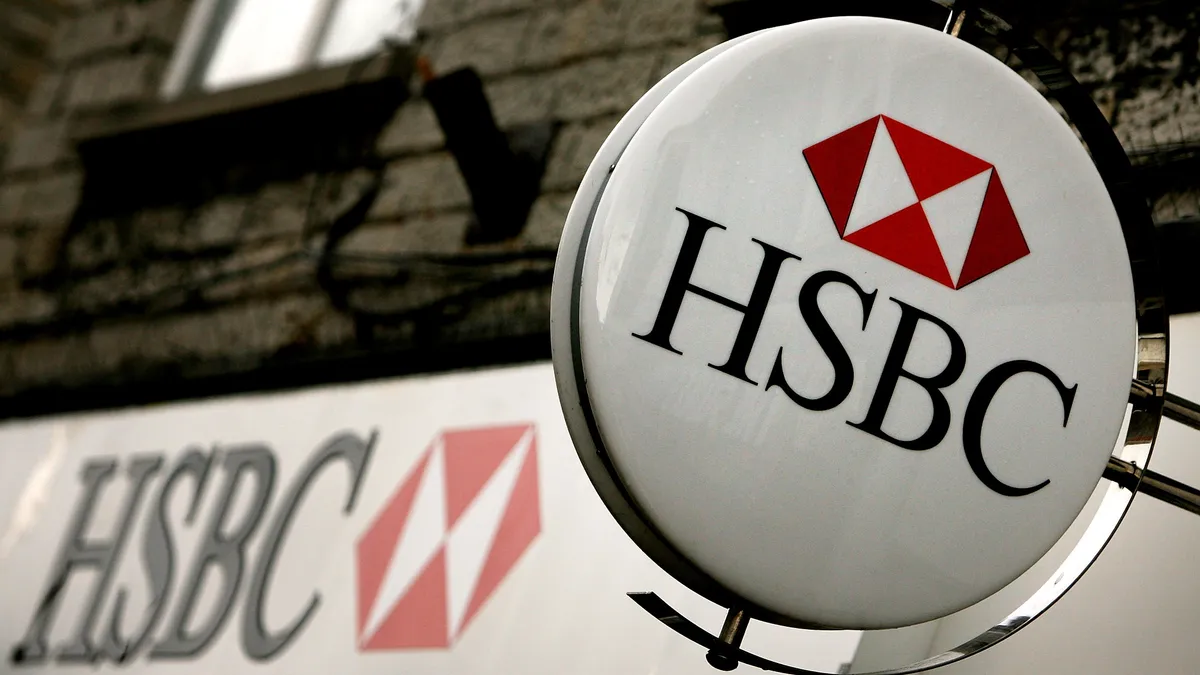Dive Brief:
- The Federal Reserve ended a decade-long enforcement action against HSBC over violations of U.S. sanctions and anti-money laundering (AML) rules, the central bank said Thursday.
- The regulator, which gave no additional details in its notice, said the action was terminated Aug. 26.
- The London-based bank had been under the order since December 2012, after the Justice Department (DOJ) identified “stunning failures of oversight” in its AML program. The bank was also accused of violating rules in handling transactions from Iran, Cuba, Libya, Sudan and Myanmar — countries under U.S. sanctions.
Dive Insight:
“Over the last decade, HSBC’s employees have worked hard to transform the bank’s financial crime risk management capabilities,” the bank said in a statement Thursday, according to Bloomberg. “We are pleased with the Federal Reserve’s decision to terminate the 2012 consent order and remain committed to our efforts to combat financial crime.”
The bank acknowledged the allegations in 2012 and entered into a deferred prosecution agreement with the DOJ and paid a then-record $1.92 billion in fines to U.S. authorities that included the Office of the Comptroller of the Currency (OCC) and the Federal Reserve.
The bank’s failure to implement proper AML controls facilitated the laundering of at least $881 million in drug proceeds through the U.S. financial system, the DOJ said in 2012.
“HSBC Bank USA severely understaffed its AML compliance function” between 2006 and 2010 “and failed to implement an anti-money laundering program capable of adequately monitoring suspicious transactions and activities from HSBC Group affiliates, particularly HSBC Mexico,” the DOJ said.
The bank rated Mexico as “standard” risk, its lowest AML risk category, the DOJ said, resulting in the bank’s failure to monitor more than $670 billion in wire transfers and more than $9.4 billion in purchases of physical U.S. dollars from HSBC Mexico.
The DOJ, which ended its oversight agreement with the bank in 2017, said HSBC Mexico’s own lax AML controls caused it to be the “preferred financial institution for drug cartels and money launderers.”
A cease-and-desist order that HSBC reached with the OCC was terminated in June 2018.












